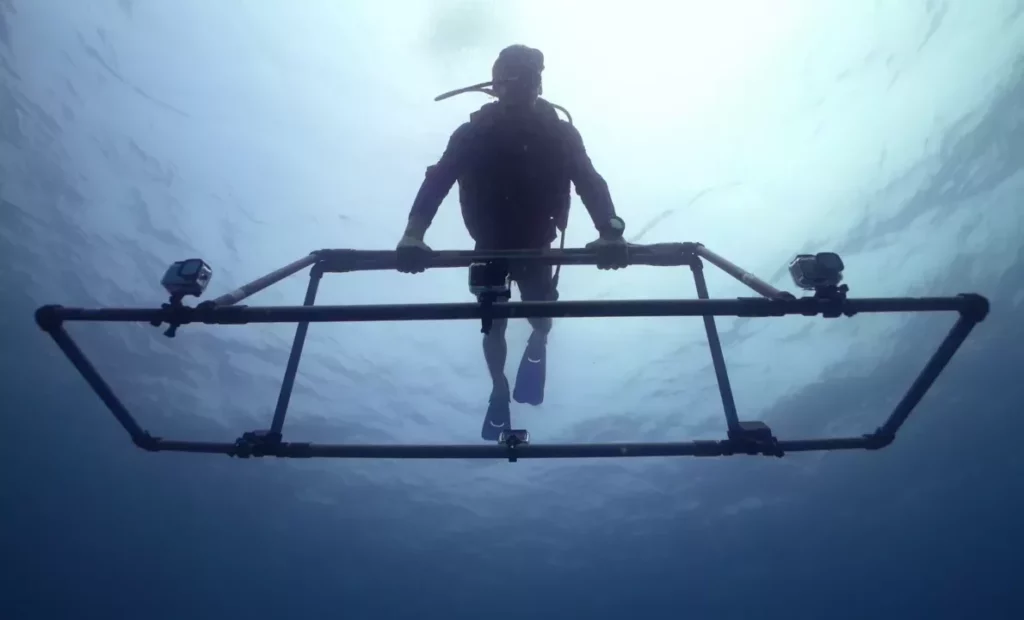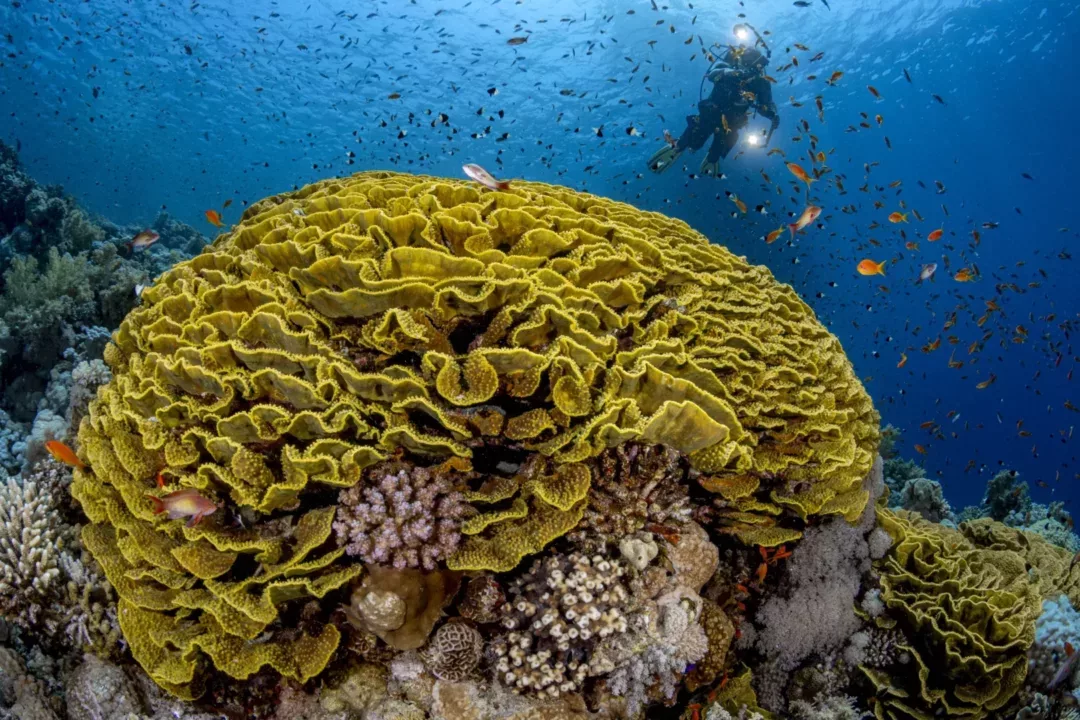First steps taken by the Transnational Red Sea Center and its partners at the Red Sea University in Port Sudan as part of a preliminary mission conducted in February
After an initial assessment trip off Port Sudan in September 2021, the Transnational Red Sea Center organized in February 2023 the first of its two scientific missions in Soudan, the second being scheduled in September this year.
This 7-day mission on board M/V Don Questo boat was conducted by a team of researchers, technicians and students from the Red Sea University (RSU) in Port Sudan under the supervision of the TRSC. This preliminary mission mainly focused on the implementation of the scalable 3D-mapping of shallow coral reefs program with machine learning, a pioneering program developed at Ecole polytechnique fédérale in Lausanne (EPFL), the academic institution hosting TRSC.
This program consists of mapping entire shallow reefs using low-cost consumer electronics, therefore guaranteeing comparability over different sampling sites and dates. In particular, the program uses recent advances in machine-learning powered computer vision to construct a digital twin of large (relatively shallow) reef segments. By using deep learning, this digital twin is automatically enriched with information about coral abundance, as well as the relevant types of corals and their health. This annotated digital twin can then be used to help understand the complex interplay of coral colonies with structural attributes (bathymetry) and the broader relation to the seascape environment.
Such a scalable and reproducible quantification of the abundance and health of reefs is crucial to monitor coral reef ecosystems over time, while conventional methods are limited in their scalability and often require significant manual effort such as diving time, positioning of reference items, e.g. transect lines, and analysis of transects by experts.
This February, the Sudan mission was made possible since TRSC’s partners from the Red Sea University had been trained as part of the previous missions TRSC carried out in Aqaba and Djibouti – conducted respectively in August and September 2022. It provides a good example of capacity building that the TRSC intends to promote over time by developing regional collaborations among the scientific community, capitalising on Switzerland’s neutrality, its long tradition of promoting dialogue and EPFL’s reputation for scientific excellence.
The Transnational Red Sea Center is a Swiss initiative created in 2019 at EPFL with the official support of the Ministry of Foreign Affairs, and bridging science and diplomacy for the study and preservation of the corals of the Red Sea, the most promising, if not the last, coral “refuge” on Earth.

Credit: Fabiano D’Amato/Transnational Red Sea Center

